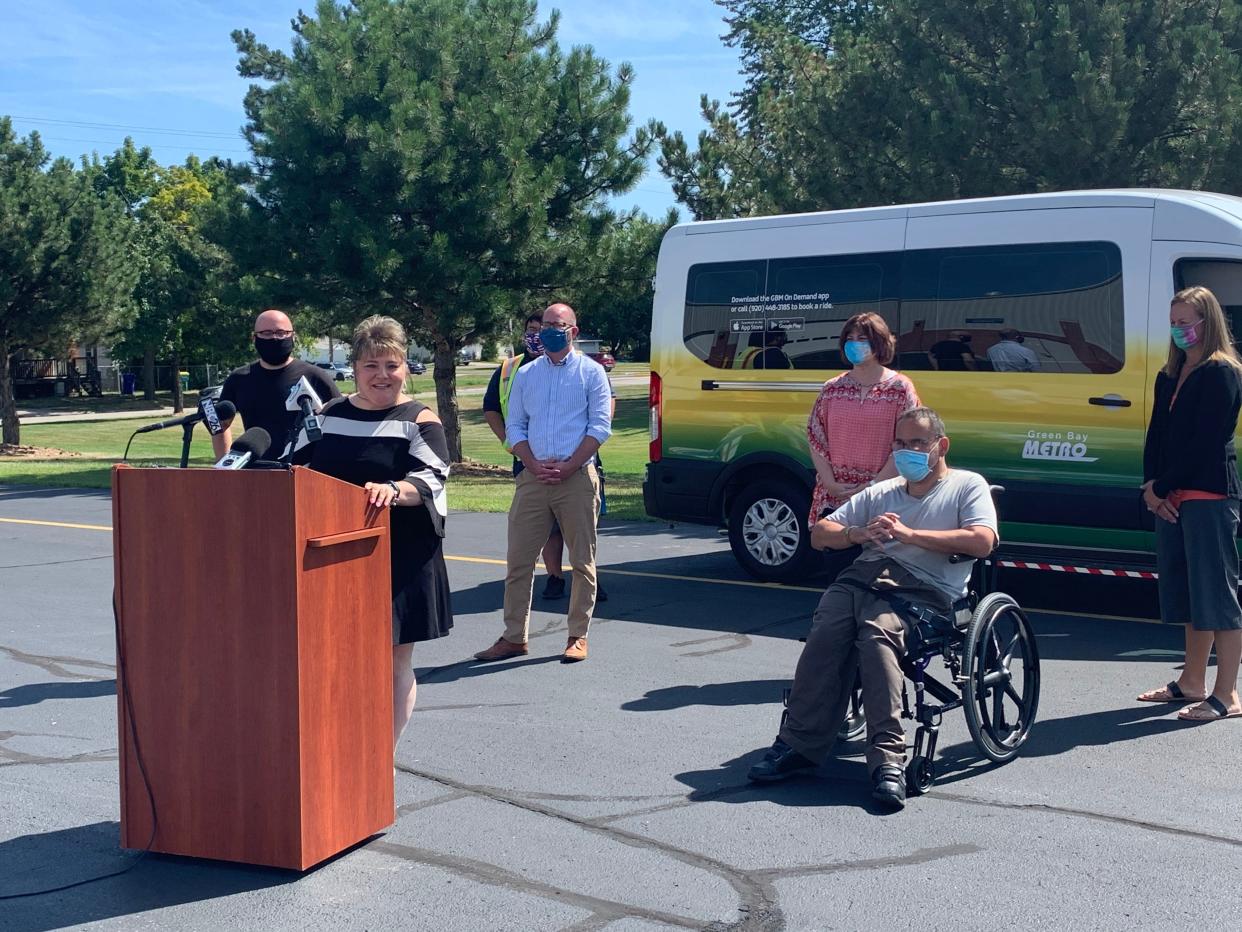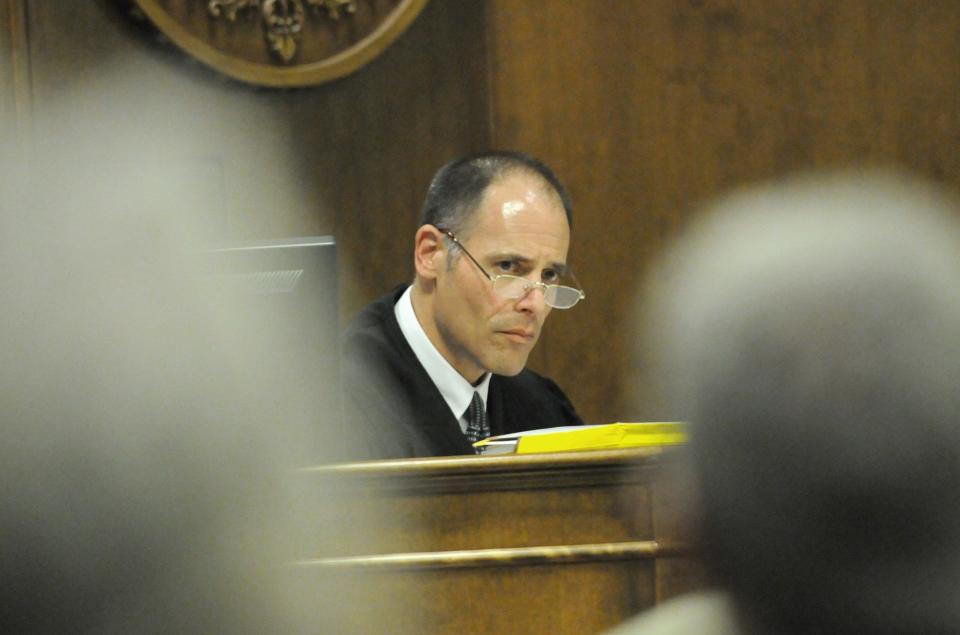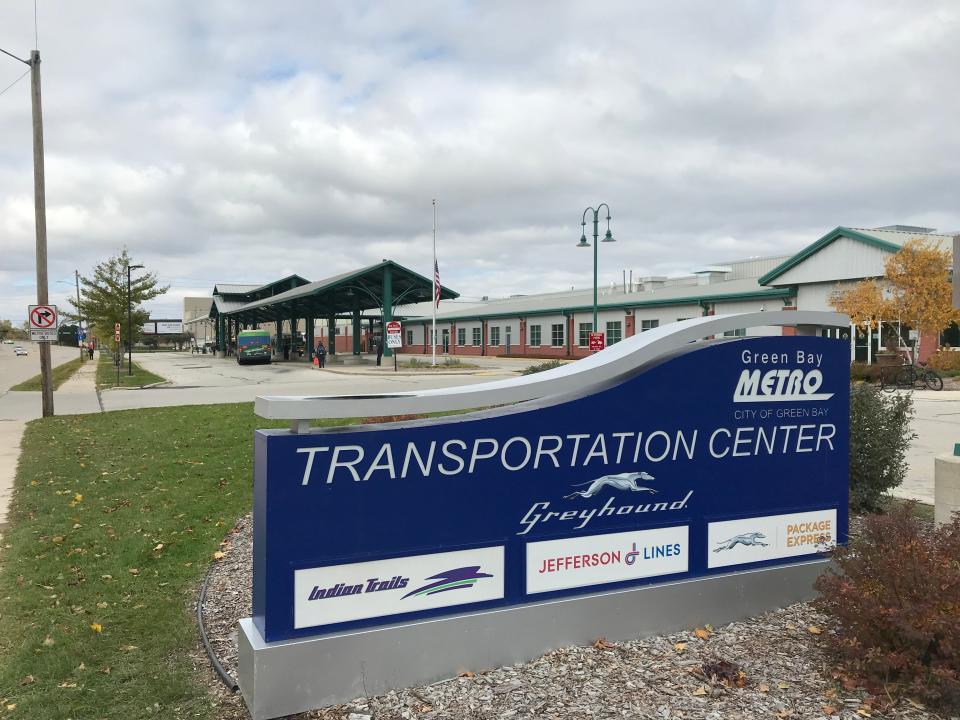Green Bay Metro cuts bus schedule, creates worry for UWGB students and others who rely on daily rides

Judge Marc Hammer worries that participants in Brown County's Drug Court will lose the ability to keep steady employment, attend counseling sessions and, ultimately, regain their driver's licenses.
Heidi Sherman fears she — and others with vision issues who rely on Metro Transit buses to get from home to work — will have more of their days eaten up catching the one bus an hour that serves the University of Wisconsin-Green Bay campus, where she teaches. She also fears that the cut from two buses per hour to one will weaken connections she has made with others who use the bus service.
Daniel Patz is concerned he'll have to spend more of his day tracking down rides, standing at snowy bus stops or becoming more reliant on Green Bay Metro's "microtransit" service, which could overburden that service and potentially price out riders who can least afford the cost or the schedule uncertainty.
The problem is not easy to solve: Like employers across Wisconsin, Metro Transit does not have enough staff to operate its 11 fixed routes at the level of service it has been providing six days a week. In simple terms, the city's bus service cut two of the routes in the past week from two buses per hour to one. Starting in the new year, Metro Transit also is looking to end its standard bus service two hours earlier every night and instead require riders to call or use an app to get rides during those times.
Green Bay Metro Transit Director Patty Kiewiz said the city "has tried everything" to find more drivers. She lists job fairs, digital and print media, bus cards and referral bonuses to city employees who suggest a person who is hired.
"It's not like we aren't trying to find more drivers," Kiewiz said. "We've done everything but go door to door."
The transit department is at 20 drivers when Kiewiz says more like 25 would be ideal. Two new drivers are about to come on board — but two, including a 50-year driving veteran, are slated to retire at year's end in two weeks.

Hammer, a county Circuit Court judge, said drug court people report having to wait up to 90 minutes to ride a bus to the county jail on the east side to take a drug test.
It's "pretty hard to keep a job, and counseling appointments, with that kind of schedule," he said. "I realize the city has challenges with public transportation, and I don't mean to complain.
"But the county has invested a lot in these treatment programs," Hammer said. "And we don't want people to fail because we cannot get them where they need to be."

'If they cut the service, we won't get it back'
For Sherman, the No. 6 bus that brings her from her east-side home to teach courses about the Vikings, medieval history and experiential archaeology at UWGB is more than just a means of transportation. It's a lifeline.
Besides getting her to where she earns a paycheck, it takes her to buy groceries or see a movie, and it's where she meets fellow Green Bay residents.
Otherwise, "you're talking about a $30 cab ride to get downtown," she said. "We know all the bus drivers and we value them, but if they cut the (service) we won't get it back. Students use it to get to events; (so do) the home-bound. This could drive people back into their homes — the people who need the service the most."
The east-side route that was cut back serves UWGB and the public safety complex. The west-side route that was affected serves the central library, the Aging & Disability Resource Center and Northeast Wisconsin Technical College; the transit system was able to keep two buses an hour on the western route during the busiest parts of the morning and afternoon.
A public hearing is planned at 8:15 a.m. Wednesday to address what the city has called a "modification" of fixed route bus, paratransit and microtransit service hours effective Jan. 1. The most-significant change is that all "fixed-route" service — buses scheduled to arrive at fixed locations at specific times — would end two-hours earlier than now scheduled, but would be replaced by microtransit service from 6:45 to 10:45 p.m. weekdays, and 1:45 to 7:45 p.m. on Saturdays. Sunday service would continue to be limited to Packers games.
The hearing follows a public written-comment period that ended Saturday; planners will review comments before making final decisions about the proposed changes to the bus service.
Kiewicz believes that the new approach would succeed, but acknowledges that it requires riders to do additional work, particularly making a telephone call or using an app to arrange for a bus to accommodate them.
One reason job seekers aren't knocking down the doors of the bus garage is that 50- and 60-hour weeks aren't uncommon; recently, some drivers were working the 60- to 70-hour range, with some getting on the road weekdays as early as 5:45 a.m. Other routes were being driven by supervisors — meaning they weren't available to supervise.
"The only employees I don't have driving," Kiewiz said, "are our mechanics."
'It's not a financial situation now' for some drivers
Even drivers who welcome overtime can quickly change their thinking if it's required every week, especially when the only day one can guarantee a day off is Sunday unless driving a bus to Green Bay Packers games (the Packers pay the city $21,000 a year to run the four game-day routes). Growing families, youth sports, illnesses and other medical issues, vacations and other times off also factor in.
Driving a bus for Green Bay Metro Transit can produce an attractive paycheck; starting wage is $21.58 an hour for new hires, but jumps to $25.31 — including paid holidays, state retirement system membership and full benefits — after 2,080 hours of driving work. Kiewiz says it often takes only about 10 months of being a driver to reach that figure, which works out to about $53,000 a year not counting overtime.
But a driver can't doze off at the wheel; he has the safety of potentially dozens of bus passengers he's responsible for, as well as a piece of equipment that can cost $450,000 to $500,000 new.
And though city employees can earn a $1,000 bonus, paid in two installments for referring an employee who is hired, there have not been lines of people waiting to fill out job applications at the bus facility on University Avenue.
"It's not a financial situation right now," Kiewiz said, "It's not a money thing anymore. It's more likely people saying 'I need more time with my family.'"
Green Bay Metro's on-demand microtransit service, launched in August 2020, is growing in popularity among people who can't or don't want to catch a scheduled bus. "GB Metro On-Demand" requires a person who wants to ride a bus to call or use an app to have a small bus pick them up at a designated location.
Kiewiz points out that microtransit ridership is rising. But it can't serve as wide a footprint as the full bus system does except from 7:45 to 9:45 p.m., and Sherman points out that the app can be difficult for a person to use if they're elderly, not skilled with (or lacking) a smart phone or have mental-health challenges.
Best-case scenario, she said, is that the affected east- and west-side routes can go back to two buses per hour as early as mid-January, although that assumes success with some newly-trained employees and perhaps three other drivers delaying vacations.
"It's not like we can't provide the service — the parks and forestry (workers) can say 'I can cut that tree down tomorrow or next week,' she said. "But we have to be able to transport the city's customers six days every week."
Contact Doug Schneider via email at DSchneid@Gannett.com, phone at (920) 265-2070 or on Twitter @PGDougSchneider
This article originally appeared on Green Bay Press-Gazette: Green Bay Metro recent cuts to bus schedule on two routes worry riders

